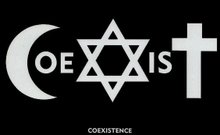The Plight of Darfur
 The nationally acclaimed documentary, “The Darfur Diaries,” was shown on the GSC campus on Feb. 26, followed by a panel discussion with Douglas Ealey, a professor of political science and religion, Amin Al-Midani, a Fulbright scholar and expert on Islamic Law, and Basmat Ahmed, a teenage Darfur refugee. The Black Student Association and Students for a Progressive Society sponsored the event in honor or Black History Month.
The nationally acclaimed documentary, “The Darfur Diaries,” was shown on the GSC campus on Feb. 26, followed by a panel discussion with Douglas Ealey, a professor of political science and religion, Amin Al-Midani, a Fulbright scholar and expert on Islamic Law, and Basmat Ahmed, a teenage Darfur refugee. The Black Student Association and Students for a Progressive Society sponsored the event in honor or Black History Month.
The people of Darfur have been plagued by warfare, bombings, air raids, rape, torture and pillaging that have resulted in over 2 million refugees dispersed throughout the neighboring country of Chad, the annihilation of over 2 thousand villages and the genocide of over 400,000 Darfur citizens.
During the panel discussion, each guest expounded on the dire situation in Darfur and how Americans can be part of the solution.
“The problem with Americans is that we do not know what is going on beyond our borders. We become prejudice and uncaring out of our ignorance,” said Ealey.
Ealey clearly expressed his view that America is indeed a great nation but also addressed the misconception that America gives the most foreign aid.
“While the U.S. considers itself a humanitarian-oriented nation, the U.S. gives more raw dollars than all countries, but gives the least percentage wise out of the wealthiest countries in the world,” explained Ealey.
Al-Midani tackled the inconsistencies existing between the corrupt government professing the Islamic faith, who are wreaking havoc upon the people of Darfur, and the actual Islamic faith.
“There is a contradiction between the Sudanese government and the Arab tradition. The regimes are driven by political agendas, not Muslim or Arab philosophies,” explained Al-Midani.
An emotionally-moved Ahmed recalled her beloved homeland now consumed in the chaos of war and oppression.
“Darfur was a wonderful, beautiful, friendly place before the war. The people are overcome because they are weak, without education and weapons,” said Ahmed. She desperately wanted to arouse involvement from the 45 listening people in the CE auditorium.
“This is the first time for me to speak about my hope. I hope everyone here could connect with another people from another place. My hope is that different people will rise up in one voice to demand the end of this war and oppression. It’s not just about talk and movies, we need action,” she stressed.
The documentary itself chronicled the plight of Darfur civilians terrorized by the corrupt rebel group Janjawid, who are equipped with weapons and money by the Sudanese government.
The documentary showed interviews with surviving refugees, most separated from their families, steeped in extreme poverty, without any options to harvest food or incomes. They live out their days in a sort of limbo, waiting to live or die. Food is scarce, malnutrition and disease run rampant, and shelter is a little more than tents consisting of sheets and sticks. Bugs make their homes on the crevices of children’s faces. Vivid nightmares make nights sleepless for many survivors. Children draw pictures of war and murder, the images that haunt them at night.
Once members of productive families, communities and tribes, Darfur refugees have been reduced to wandering nomads. Their only goal is avoiding exploitation and death in the constant crossfire of demented rebel groups and corrupt regimes.
After surviving the uprooting and dislocation, many refugee camps are determined to provide protection for the people. The Darfur Diaries follow members of the Sudan Liberation Army, a group assembled to combat the rebel group Janjawid and the Sudanese government.
“We are compelled to fight against the government for our survival,” explained one human rights leader in the Sudan Liberation Army.
An effort to revive education is also underway in many refugee camps. Classes are conducted within half-walls constructed from mud and water, often operating without textbooks or writing utensils. However, the lack of supplies does not impugn their will.
“There is no life without education,” said one refugee.
Darfur Diaries has been shown on college campuses across the nation. It was created to provide a window into another place and culture that is crumbling under the reign of injustice. To find out more information about this crisis and how to get involved in a solution go to: www.darfurdiaries.org.











1 comment:
Preach it sister!
Post a Comment